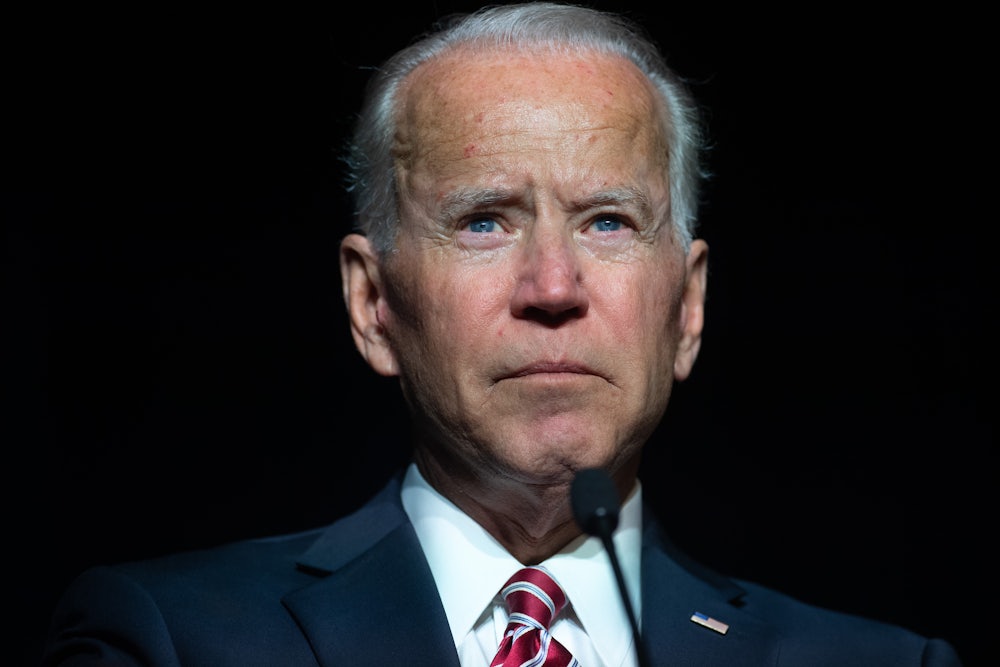It has become an All About Eve election. Everything that happened before 1 a.m. on Wednesday has fulfilled Bette Davis’s cinematic prediction, “Fasten your seatbelts, it’s going to be a bumpy night.”
Democrats had hoped for a massive, unequivocal repudiation of Donald Trump for his mishandling of the pandemic, his raging White House incompetence, and his disdain for the rule of law. Instead, there was the sobering message that Trump’s support in key states like Florida was, in truth, greater than the polls had predicted.
Even with the TV networks demonstrating admirable restraint in not rushing to project swing states, Joe Biden has lost Florida, Texas, and Ohio. And while Democrats have some reason for optimism in Georgia, North Carolina is also looking dicey for the former vice president. In many key states, the counting of votes will go on through Wednesday or even later.
Now, although nothing is definite, Biden’s path to victory is centered on the lost Rust Belt states of Wisconsin, Michigan, and Pennsylvania, plus Arizona, which, just before midnight, Fox News called for Biden. But even after you throw in a lone Nebraska electoral vote from Omaha, it only gets Biden to 290 electoral votes (and if he loses Pennsylvania, it gets him to a nail-biting 270).
This was, in many ways, the best that Trump and the Republicans could have hoped for on election night. A close contest will produce endless litigation over disputed ballots in the up-for-grabs states, especially Pennsylvania. And a 6–3 conservative majority on the Supreme Court could end up vindicating the GOP’s heavy-handed agenda of voter suppression.
But maybe an emotionally wrenching election night was inevitable. Despite Democratic optimism (which I shared), nothing in life has ever come easy for Joe Biden, from the death of his infant daughter in a 1972 car crash to the brain tumor that killed Beau Biden in 2015. Then there were two failed presidential campaigns and Biden’s embarrassing defeats in the 2020 Iowa caucuses and New Hampshire primary. Throw in a pandemic that prevented Biden, an old-fashioned, hand-shaking pol, from running a traditional presidential campaign.
There will be plenty of time to analyze why the polls produced an unrealistically high level of confidence in a Biden sweep. Even Nate Silver’s cautious website ended up giving Biden an 89 percent chance of victory. Covid-19 also limited the ability of reporters to do on-the-ground interviews in swing states, which, in the past, has been a check on overreliance on poll numbers.
Yes, Biden ran a cautious campaign, and some will argue it was too cautious. But Biden also unified the Democratic Party in a way that few thought possible at the beginning of 2020. At a moment of deep stress in the nation, with the Covid death count topping 1,000 per day, Biden ran as the person he always was—a healer who believed in national unity.
If Biden pulls off a victory, he will need every ounce of political skill to survive the never-ending attacks from Mitch McConnell in the Senate and Trump in exile. Democratic hopes of making Senate breakthroughs in states like South Carolina, where Lindsey Graham bested Jamie Harrison, and Iowa, where Joni Ernst prevailed against Theresa Greenfield, meant that there could well be a 51–49 GOP majority, allowing McConnell to continue as majority leader.
Downtrodden Democrats will need to come to grips with the reality that vast swaths of the country like, or at least accept, the hokum and hatred that Trump has been peddling. It suggests that the job of persuasion in the years ahead will be long and arduous.
Once again we have learned the bitter lesson that nothing about American democracy can be taken for granted. But as Biden said to the sound of car horns in a brief statement in Wilmington, “Keep the faith, guys. We’re going to win this.”
And with those words, the hope remains visible (if not as bright as we had all wished) that Joe Biden can soon begin the job of renewal and resurrection as the next president of these damaged 50 states.
